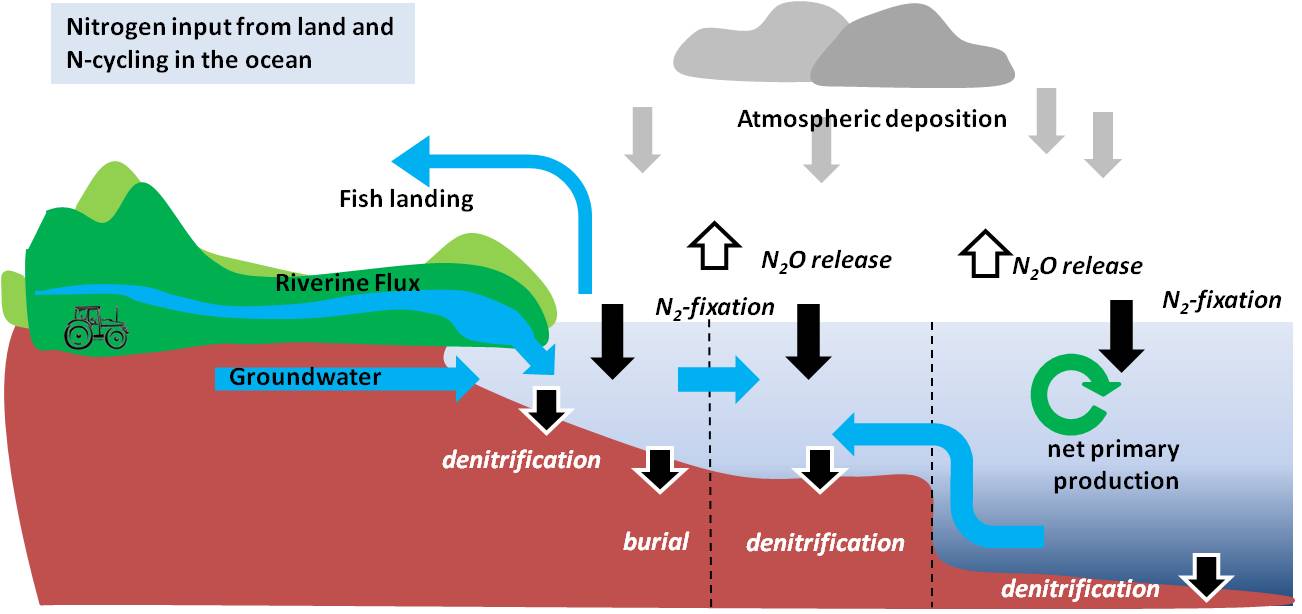
Working Group on Marine Nitrogen Cycling
Nitrogen is one of the most important elements for all marine life forms. The cycling of nitrogen in the ocean is closely linked to the cycles of other elements like carbon, phosphorous and sulphur. It is possible to detect reduced forms of inorganic nitrogen (DIN) like nitrate, nitrite, ammonium and organic molecules (DON). These compounds can be imported by river discharge and precipitation and can subsequently be used for primary production by phytoplankton and macrophytes. Furthermore, the input of new nitrogen can take place via dinitrogen (N2) which can only be used by diazotrophic cyanobacteria to build up nes particulate biomass. The primary production is then transported through the food web directly by grazing (zooplankton) and indirect by mediation of the microbial loop. Dead particulate biomass can sink to the sediment and is re- mineralisized by bacteria. For example, dissolved dinitrogen (N2) can be produced and released into the water column by denitrification.
All these conversion reactions of nitrogen con be tracked and analysed in our working group with the help of stable isotopes of nitrogen (14N and 15N).

Since the middle of the last century the anthropogenic perturbation of the nitrogen cycle has increased and is a major threat to the ocean and especially the coastal environment. The anthropogenically derived nitrogen mainly stems from agricultural practices and reaches the oceans via rivers and atmospheric deposition.
Therefore, our scientific work at the IOW is focused on a number of aspects of the nitrogen cycle and the human impact:
- How much nitrogen is fixed by cyanobacteria and how is that regulated by environmental factors?
- How much of the fixed nitrogen is transferred to higher trophic level?
- What role plays the nitrogen input from major rivers for eutrophication problems and anoxia in the central Baltic Sea?
- Can the losses of combined nitrogen by denitrification counteract eutrophication?